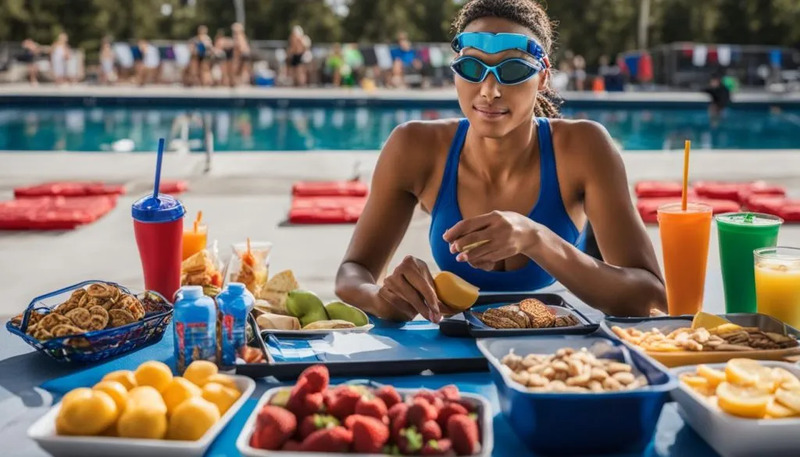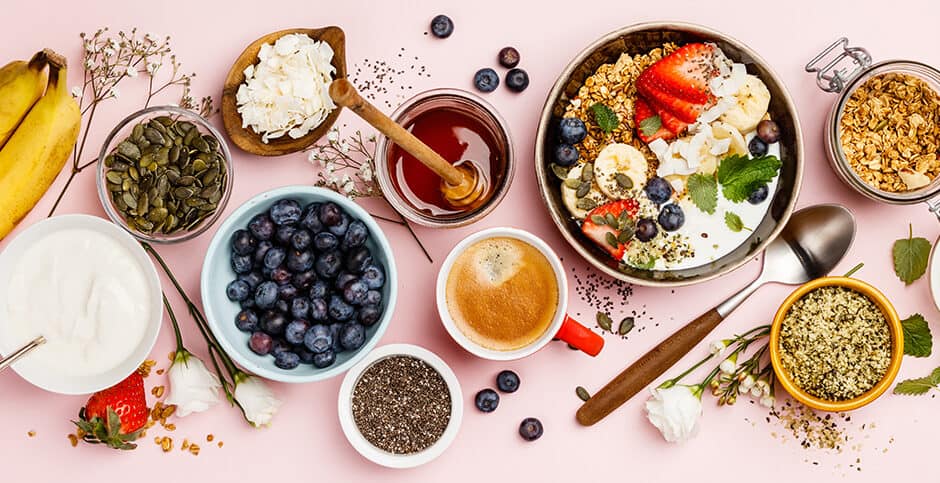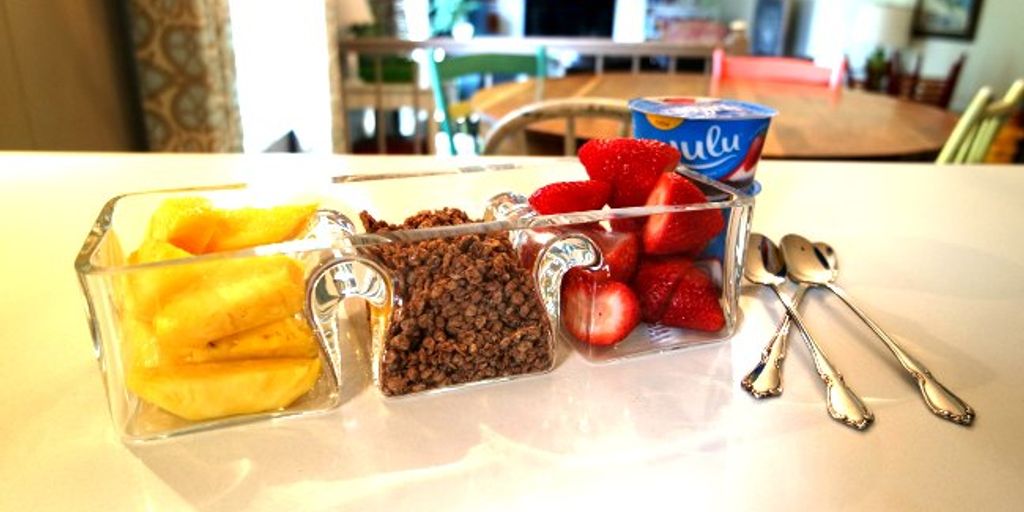In the world of competitive swimming, nutrition plays a pivotal role in achieving peak performance and maintaining overall health. This article outlines effective food plans tailored for swimmers, focusing on strategies for nutritional success. From the importance of macronutrients to hydration techniques, and from pre to post-workout nutrition, these guidelines are designed to help swimmers fuel their bodies optimally for both training and competitions.
Key Takeaways
- A balanced diet with carbohydrates, proteins, and healthy fats is crucial for swimmers.
- Hydration is key, and swimmers should drink fluids before, during, and after training.
- Pre-workout meals should be rich in carbohydrates to boost energy levels.
- Post-workout nutrition is vital for muscle repair and recovery.
- Consulting with a sports dietitian can tailor nutritional plans to individual needs.
Kickstarting Your Swimmers Food Plan
Understanding the Basics of Nutrition
Getting the basics right is the first step to any successful swimmer’s food plan. Proper swimming food plan enhances performance by fueling with nutrients, optimizing energy levels, endurance, and recovery. It’s all about finding the right balance of carbohydrates, proteins, and fats, along with sufficient vitamins and minerals to keep the body in top shape.

Understanding about nutrition
Read more: A Comprehensive Meal Plan for Swimmers to Enhance Endurance
Essential Components of a Swimmer’s Diet
Swimmers should focus on a balanced diet that includes carbohydrates, proteins, healthy fats, vegetables, fruits, and whole grains. Carbohydrates should be the primary fuel source, with adequate protein for muscle repair. Here’s a quick breakdown:
- Carbohydrates: Rice, pasta, whole grain breads
- Proteins: Chicken, fish, eggs
- Fats: Avocado, nuts, seeds
Planning Meals and Snacks for Optimal Performance
Planning is key! Structuring meals and snacks around training schedules ensures that swimmers are always ready to perform. Pre-workout meals should be rich in carbs and consumed about 2-3 hours before swimming to maximize energy availability. Post-workout, focus on protein to aid in muscle recovery. Hydration should be a constant throughout the day, not just during workouts.
Hydration Strategies for Swimmers
Importance of Staying Hydrated
Staying hydrated is crucial for maintaining peak performance in the pool. Swimmers lose a significant amount of fluids through sweat, even in the water, which can lead to dehydration if not properly managed. Hydration affects not only your performance but also recovery, making it a key element of any swimmer’s routine.
Best Practices for Fluid Intake
To ensure you’re well-hydrated, start hydrating well before you hit the pool. Aim to drink fluids consistently throughout the day, not just before or after your swim. Here’s a quick guide on what to drink:
- Water: Your go-to for most hydration needs.
- Sports Drinks: Useful for longer sessions to replenish electrolytes.
- Coconut Water: A natural alternative packed with electrolytes.
Experiment with different fluids during training to see what helps you swim faster and feel better.
Carrying Water On-the-Go
For those long training sessions or competitions, having water accessible is essential. Invest in a good quality water bottle that you can take to the poolside. This ensures you can hydrate as needed and focus on your performance without interruptions.
Pre-Workout Nutrition for Peak Performance
What to Eat Before You Swim
Fueling your body before a swim is crucial for maintaining energy and enhancing performance. Timing is key: aim to eat a balanced meal 3-4 hours before your swim to allow for digestion. If you’re closer to your workout, opt for a lighter snack about 45-60 minutes prior. Ideal foods include lean proteins, fruits, and whole grains.

Eat before swimming
Read more: How Swimmers Can Optimize Their Diet and Workout for Maximum Results
Timing Your Meals Right
To maximize your energy levels during your swim, timing your meals is essential. A full meal should be consumed 3-4 hours before, and a smaller snack 45-60 minutes before your session. This strategy helps ensure that you have the necessary energy without feeling bloated or sluggish.
High-Carbohydrate Snacks Ideas
Carbohydrates are your go-to source for quick energy. Here are some top snack ideas that are easy to digest and perfect for a pre-workout boost:
- Banana with a small spoon of peanut butter
- A small bowl of oatmeal with berries
- Energy bars specifically designed for athletes
- A piece of toast with honey
Remember, the goal is to feel energized, not overly full. Choose snacks that suit your digestive comfort!
Post-Workout Recovery Foods
Best Foods for Muscle Repair and Growth
After a grueling swim, your body needs the right fuel to repair muscles and prepare for the next challenge. Foods rich in protein and healthy fats are your best bet. Think grilled chicken, salmon, or a quinoa and black bean salad. These options not only help in muscle repair but also ensure you’re ready for your next swim.
Timing Your Post-Workout Meals
Timing is crucial when it comes to post-workout nutrition. Aim to eat within 30-60 minutes after your swim to maximize recovery. This window is when your body is most receptive to nutrients that can aid in muscle recovery and growth.
Hydrating After Intense Sessions
Hydration doesn’t stop at the pool’s edge. Continue to drink water and electrolyte-rich fluids after your workout to replenish what you’ve lost through sweat. A simple guideline is to drink at least 16 ounces of fluid for every pound lost during exercise.
Balancing Macronutrients in a Swimmer’s Diet
Carbohydrates: The Power Source
Carbohydrates are the primary fuel for swimmers, providing the quick energy needed during intense training sessions. Swimmers should aim to get about half of their daily caloric intake from carbohydrates like whole grains, fruits, and vegetables.
Proteins: Building Blocks of Muscle
Protein is crucial for muscle repair and growth. It’s recommended that swimmers include high-quality protein sources such as lean meats, fish, eggs, and dairy in their diet. This helps in maintaining muscle mass and aiding recovery after workouts.
Fats: Essential but Often Overlooked
While fats are often less emphasized, they play a vital role in a swimmer’s diet by supporting cell growth, protecting organs, and helping to absorb vitamins. Healthy fats from sources like avocados, nuts, and seeds should be included in moderation.
Remember: Balancing these macronutrients is key to a swimmer’s dietary success. Each plays a unique role in supporting overall health and athletic performance.
Special Nutritional Considerations for Competitive Swimmers
Tailoring Diets for Training Cycles
Competitive swimmers face different nutritional needs depending on their training cycles. During intense training periods, carb loading might be necessary to ensure sustained energy. Conversely, during lighter training days, reducing caloric intake can help maintain optimal body composition.
Adjusting Intake Based on Performance Needs
It’s crucial to adjust your diet based on your performance and recovery needs. For instance, after a rigorous swim, prioritizing protein intake can help with muscle repair and growth. Always remember, a well-balanced meal is essential for consistent performance and health.
Consulting with a Sports Dietitian
To truly optimize your swim nutrition, consulting with an Accredited Sports Dietitian is invaluable. They can provide personalized dietary plans that cater to your specific needs and help you avoid common dietary pitfalls. This step is crucial for those looking to enhance their performance through tailored nutrition strategies.

Read more: Top 5 Best Diets for Swimmers: Boost Your Performance
Everyday Eating Habits for Swimmers
Incorporating Variety for Nutritional Balance
To keep things interesting and nutritionally balanced, it’s crucial to mix up your meals. Think colorful fruits, vegetables, lean proteins, and whole grains. This not only prevents dietary boredom but also ensures you’re getting a wide range of nutrients to support all your swimming needs.
Mindful Eating Practices
Adopting a mindful approach to eating can significantly enhance your performance. Pay attention to your body’s hunger and fullness cues, and try to eat in a calm, distraction-free environment. This helps in better digestion and absorption of nutrients, making every meal more effective.
Avoiding Common Dietary Pitfalls
It’s easy to fall into the trap of eating the same things over and over or relying too much on processed foods. To optimize your energy levels and overall health, focus on whole, unprocessed foods and be wary of too much sugar and fat, which can drag down your performance.
Incorporating effective everyday eating habits is crucial for swimmers looking to enhance their performance and maintain optimal health. At Swim Time Log, we provide a wealth of resources and expert advice to help you balance your nutritional intake with your swimming routine. Dive into our comprehensive guides and tailor your diet to meet the demands of your training. Visit our website to explore more and take your swimming to the next level.
Wrapping It Up
As we’ve explored throughout this article, a well-rounded and thoughtful nutrition plan is key for swimmers aiming for peak performance. Remember, your body is like a high-performance engine, and the quality of fuel you provide it makes all the difference. From hydrating adequately to packing in those essential nutrients with balanced meals, every bite counts. Keep these tips in mind, consult with a nutrition expert if needed, and here’s to making a splash with your swimming goals!
Read more: Optimal Swimmers Diet Plan to Lose Weight: A Comprehensive Guide
AUTHOR
Sang Nguyen
Sang Nguyen is a former national swimmer for Vietnam who has transitioned into coaching. With a passion for fostering a healthy swimming community and connecting like-minded individuals,......Read More
BLOG
Maybe You Are Interested
Good Swim Meet Snacks: What to Eat for Optimal Performance
Good nutrition is crucial for swimmers to maintain energy, recover quickly, and perform at their...
Read More...Optimizing Your Performance: The Best Diet for Swimming Training
Optimizing your performance in swimming is not just about rigorous training; it’s equally crucial to...
Read More...Achieve Peak Performance with This Diet Chart for Swimmers
Whether you’re a novice or an expert swimmer, understanding the right diet is crucial for...
Read More...Eating Like a Champion: Exploring the Diet of Michael Phelps
Michael Phelps, renowned for his Olympic triumphs, has a diet as extraordinary as his swimming...
Read More...Muscle Gain for Swimmers: Tailoring Your Diet for Strength
Swimming is a demanding sport that requires a tailored approach to nutrition to support muscle...
Read More...A Comprehensive Diet Plan To Gain Weight For Swimmers
Swimming is a demanding sport that requires meticulous attention to nutritional needs to optimize performance,...
Read More...